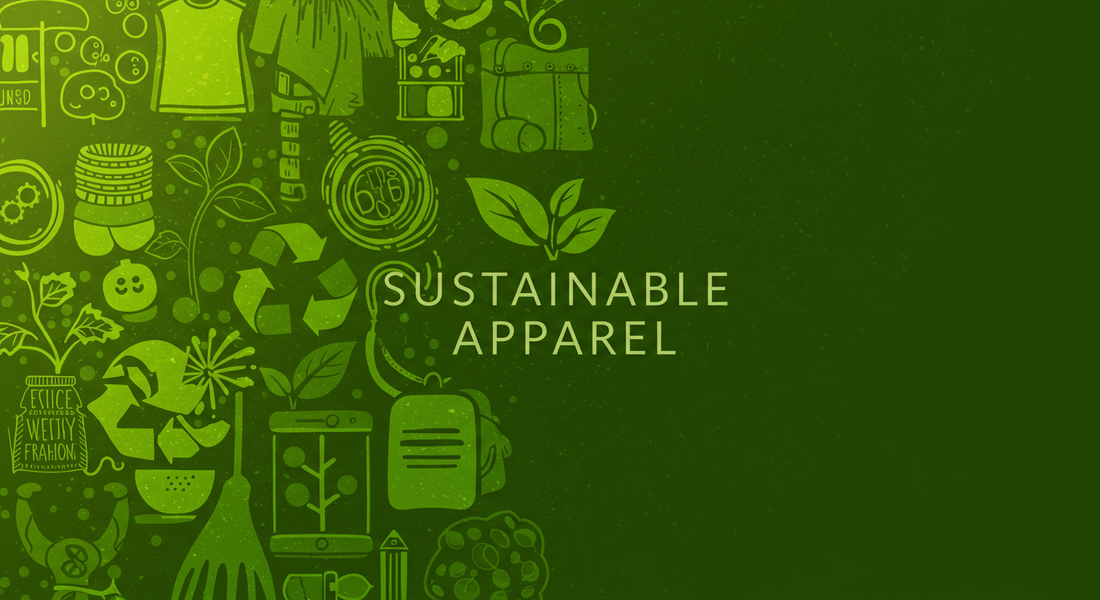
Eco-Threads: Weaving a Better Future for Fashion
The Rise of Ethical Fashion: Weaving a Sustainable Future
The fashion and textile industries are at a critical juncture. Fast fashion's detrimental impact, contributing to 10% of global carbon emissions and generating a staggering 92 million tons of waste annually, demands a shift towards sustainable practices. Consumers and brands are increasingly recognizing the urgency of this change, embracing eco-conscious alternatives like custom apparel and sustainable embroidery. At TE Genesis, we believe sustainability is not a fleeting trend, but a fundamental responsibility. This article explores how innovative practices in embroidery and custom apparel are reshaping the fashion landscape while safeguarding our planet.
1. Sustainable Materials: The Cornerstone of Ethical Fashion
The foundation of ethical fashion lies in the materials we choose. Several key options are leading the way:
- Organic Fabrics: Organic cotton, cultivated without synthetic pesticides, significantly reduces water consumption (by up to 91%) compared to conventional cotton farming and fosters healthier ecosystems. Hemp, a rapidly renewable, low-water crop, offers another excellent option, yielding durable and breathable garments.
- Recycled Threads & Fibers: Recycled polyester (rPET), derived from repurposed plastic bottles, offers a compelling solution to plastic waste. Its production reduces landfill burden and energy consumption (by up to 59%) compared to virgin polyester. Innovative brands are incorporating rPET into their products, like econscious's use of 80% organic cotton and 20% recycled polyester in their hoodies, demonstrating that comfort and sustainability can coexist.
- Natural Dyes: Moving away from chemical-laden dyes towards plant-based alternatives like indigo and mineral dyes minimizes toxic runoff and creates rich, unique hues that synthetic dyes often struggle to replicate.
2. Eco-Friendly Production Techniques: Minimizing Environmental Impact
Sustainable materials are only part of the equation. Eco-friendly production techniques are equally vital:
- On-Demand Manufacturing: Custom apparel production models offer a powerful solution to overproduction. By creating garments only when ordered, this approach reduces textile waste by as much as 30%, ensuring that every piece serves a purpose.
- Low-Impact Embroidery: Embroidery, a key element of custom apparel, can also be made more sustainable. Hand embroidery, a time-honored craft, consumes significantly less energy (up to 90%) than machine embroidery. Digital embroidery software further optimizes thread usage to minimize waste. The use of water-based inks and biodegradable stabilizers completes the eco-friendly embroidery process.
- Ethical Manufacturing: Partnering with factories certified by organizations like Fair Trade or GOTS (Global Organic Textile Standard) ensures fair wages and safe working conditions for garment workers. Brands like Known Supply exemplify this commitment, hand-signing each garment to connect wearers with the artisans who created them.
3. The Multifaceted Benefits of Ethical Fashion
The advantages of sustainable fashion extend beyond environmental protection:
- Brand Loyalty & Trust: Consumers are increasingly drawn to brands that align with their values. Studies show that a significant majority (67%) of consumers prefer brands that demonstrate a commitment to sustainability. Custom eco-apparel enhances brand reputation, attracts environmentally conscious customers, and fosters long-term brand loyalty.
- Cost Efficiency: The durability of sustainable materials like hemp and organic cotton translates to reduced replacement costs over time. Furthermore, bulk orders of sustainable apparel often qualify for discounts, making eco-friendly choices more accessible for businesses of all sizes, including startups.
- Community Impact: Localized production significantly reduces carbon emissions (by up to 25%) associated with transportation and supports regional economies. Companies like Real Thread, through their partnerships with North American manufacturers, prioritize energy-efficient workflows and contribute to local economic growth.
4. Sustainability in Action: Case Studies
Several brands are leading the charge in sustainable fashion:
- econscious EC5650 Zip Hoody: This hoodie, crafted from 80% organic cotton and 20% recycled polyester, exemplifies the blend of comfort and sustainability. Its durable construction, featuring YKK zippers and double-stitched seams, embodies the principles of circular fashion.
- Known Supply’s Fair Trade Sweatshirts: Known Supply’s commitment to transparency is evident in their practice of having each sweatshirt signed by the worker who made it. Produced with 100% organic cotton fleece, these sweatshirts support fair wages in Peru and Uganda.
- Central Embroidery’s Zero-Waste Kits: This UK-based brand utilizes 100% biodegradable threads and solar-powered machinery to minimize waste (by up to 40%) while delivering vibrant, personalized designs.
5. The Future of Sustainable Fashion: Innovation and Collaboration
The future of sustainable fashion is bright, with ongoing innovation and growing consumer awareness:
- Biodegradable Innovations: Exciting new materials like algae-based threads and mushroom leather hold immense promise for revolutionizing the textile industry. These innovative materials offer the potential for complete biodegradability, leaving no harmful footprint on the planet.
- Digital Embroidery: AI-driven design tools and 3D stitching techniques are optimizing embroidery processes to minimize material waste. Companies like Merlin Embroidery are leveraging these technologies to reduce thread usage through precision patterning.
- Policy & Consumer Power: Increasingly stringent environmental regulations are incentivizing brands to adopt greener practices. Simultaneously, growing consumer awareness, particularly among millennials (72% of whom prioritize sustainability in their purchasing decisions), is driving industry-wide change.
Conclusion: Weaving a Sustainable Legacy
The future of fashion hinges on the delicate balance between creativity and responsibility. By embracing organic materials, ethical production methods, and innovative technologies, we can minimize waste, empower communities, and create apparel that respects both people and the planet.
Join the Movement with TE Genesis
Explore our Sustainable Apparel Collection, where every stitch tells a story of sustainability. Together, we can redefine fashion—one thread at a time.

